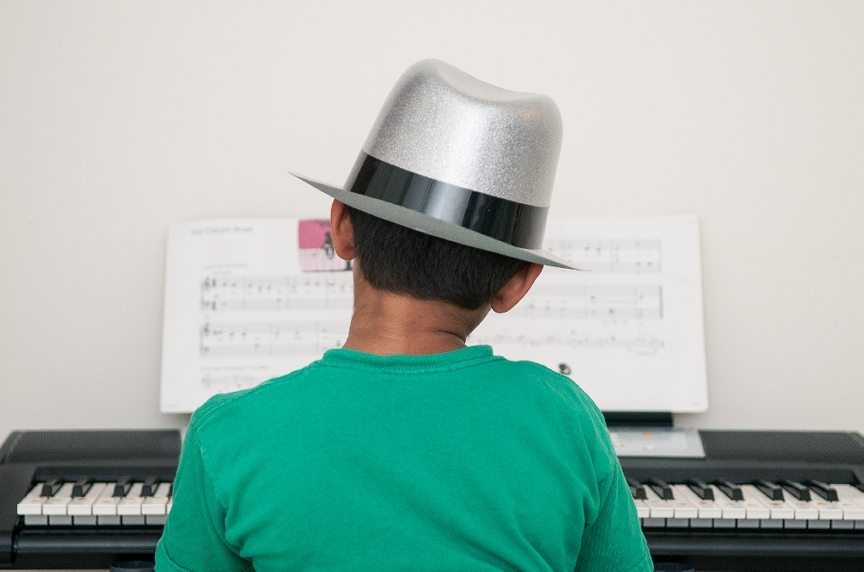Medical practitioners say that our brain develops at a speedy rate between birth and turning 
Playing piano can help children, at any age, to succeed in school. Many studies have covered this topic in the past and results have shown that piano lessons can enhance a child’s brain and many other abilities too. The following are 20 ways that playing piano can benefit your child in school:
- Music symbols, rhythmic training, and structure use proportions, fractions, and ratios, which are all essential in mathematics.
- Playing piano can optimize your child’s brain circuitry and neuron development.
- Music training, such as piano lessons, has been connected to spatial-temporal reasoning skills (form mental images, recognize relationships among objects, put puzzles together, ability to read maps, and so on). These skills are said to be very useful in mathematics, chess, and science.
- Piano lessons can help your child develop his motor skills and hand-eye coordination.
- It increases problem-solving matters, logic and thinking skills, for example analysis, assessment, and the organization/linkage of ideas.
- Piano playing can expand multiple intelligences and help your child with communication, cognitive, and transfer study skills from one subject to the other in any prospectus.
- If your child is involved in an orchestra or group ensemble activities, they can help promote social harmony and cooperation. At the same time, your child can learn how to discipline himself while working with the rest of the group toward a common objective.
- It is stated that piano lessons can augment your child’s memory. Take the ABC’s as an example; most children memorize them easier by repeating the tune in a banal rhythmic structure.
- Learning to play piano is a handy way to improve or aid your child’s reading instruction and ability.
- This may seem unbelievable to certain individuals, but piano lessons can improve critical writing and reading.
- It can also raise your child’s test scores, lessen his performance anxiety, and teach him to handle or manage stress better, especially during examination season.
- If your child lacks skills in creative thinking, playing the piano can help boost it.
- Reading music and performing can help your child to think ahead.
- In vocal or piano lessons, your child can improve his pronunciation, vocabulary, and language skills. You will notice that his phrasing, rhythm, and pitching are better, particularly when he sings in different languages (as he follows the tune of the piano).
- Playing the piano helps children to improvise by themselves; thus, they tend to think on their feet more so, than those who do not participate in piano or any musical lessons.
- Piano lessons can help any child channel his negative or unexpressed emotions in a safe, positive way.
- Solo performances are often linked to self-efficacy and self-esteem. If your child is picked for a solo piano reciting, you can be certain that he will perform at his best in front of an audience.
- When children prepare and constantly practice for their recitals or performances, they work to play flawlessly. Generally, they tend to apply similar perseverance and determination to numerous future undertakings or otherwise.
- Your child will improve his level of understanding in his homework and have a greater level of concentration.
- Children who take piano lessons normally have a far better attitude, are less intimated, and they are more motivated to learn new things.
Now that you know what piano lessons can do to your child, would you send him or her to a music school?
For a limited time only, Cooper Piano has purchased another piano dealer’s inventory. This surplus of piano means buying power for the customer. Save Now below…first come, first serve basis.







